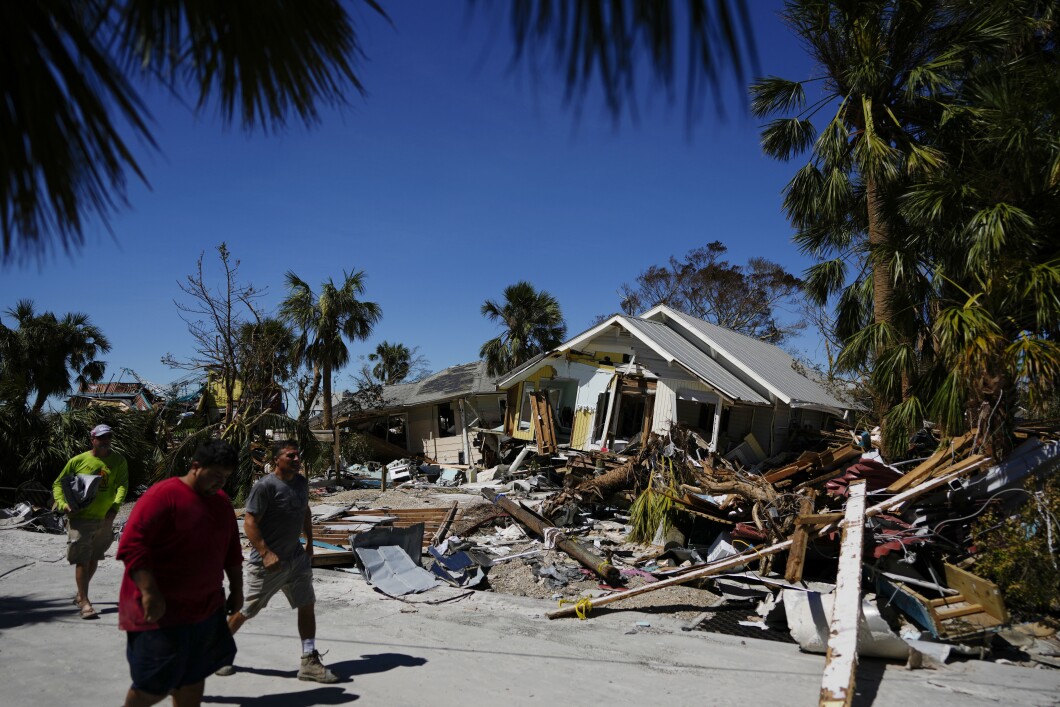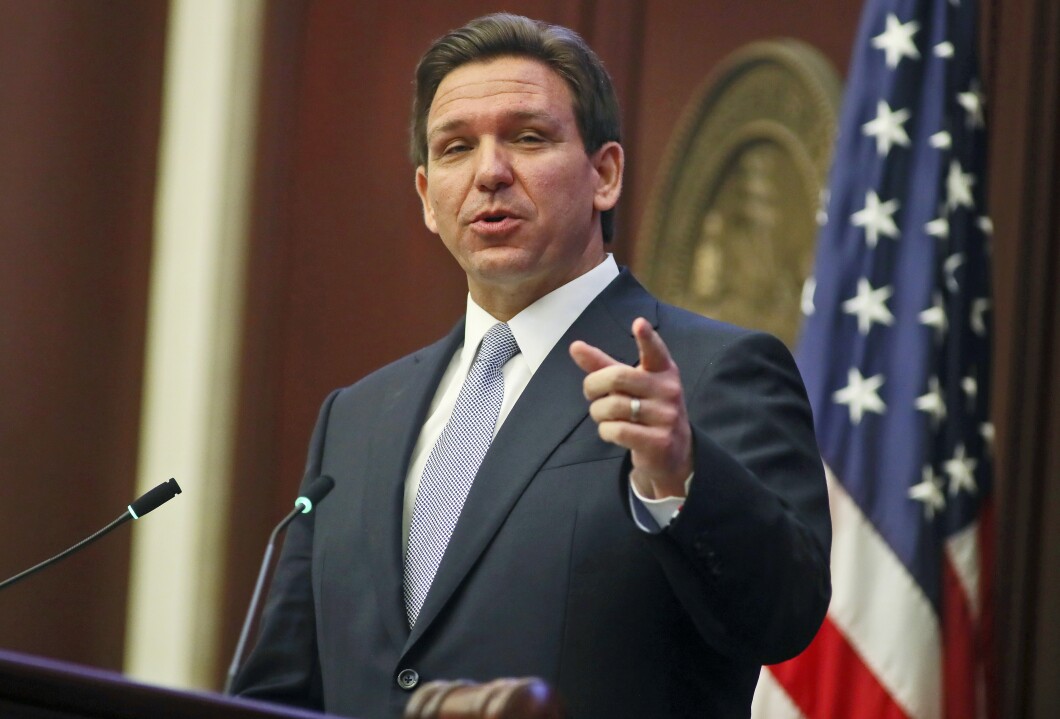
Florida has become a hotbed for people migrating from other states in recent years, but as the population has increased, so has the average price of homeowners’ insurance premiums.
Earlier this week, Farmers Insurance announced it would discontinue various home, auto, and umbrella policies in the state, citing a need to “effectively manage risk exposure.” The move is likely to complicate the Florida homeowners insurance market, which is already in turmoil, even as lawmakers pursue aggressive action to stabilize the market.
NINE TAKEAWAYS FROM FBI DIRECTOR CHRISTOPHER WRAY’S TESTIMONY
“We have advised the Florida Office of Insurance Regulation (OIR) of our decision to discontinue offering Farmers-branded auto, home, and umbrella policies in the state. This business decision was necessary to effectively manage risk exposure. Farmers offers insurance through several different brands, and this decision applies only to policies issued through our exclusive agency distribution channel,” Farmers Insurance spokesman Trevor Chapman told the Washington Examiner in a statement.
“There is no impact to 70 percent of policies currently in force for customers in the state, including Bristol West, Foremost Signature, Farmers GroupSelect, Foremost Choice, and Foremost-branded policies. Such policies will continue to be available to serve the insurance needs of Floridians. Affected customers will receive notifications detailing when their coverage will end and will be advised of options for replacement coverage,” he said.
The withdrawal of policies by Farmers Insurance is the latest bump in the road for a turbulent homeowners insurance market that is unlikely to be stabilized in the near future.
Mark Friedlander, the director of corporate communications for the Insurance Information Institute, said the dramatic rising costs of premiums for homeowners insurance is unique to the Sunshine State but not due to the threat of hurricanes.
“Yes, Florida is prone to hurricanes more than any other state, understandably a high-risk state, but no other state faces man-made factors like Florida does. Yes, there are fraud issues in other states, there are some legal system issues in other states, nothing along the lines of Florida,” Friedlander told the Washington Examiner.

Excessive litigation of insurance claims in the Sunshine State, facilitated by long-standing laws in Florida, has created the crisis. Friedlander says the excessive litigation has led seven regional insurers in the Sunshine State to go insolvent in the past year and a half.
“The property insurance market has been extremely unstable, even today, we have 18 Florida residential insurers — smaller companies — that are on a watchlist of the Florida insurance regulator because of concerns over their financial health,” Friedlander said.
“So this has been an ongoing crisis and as a result, in Florida, consumers are paying the highest average premium in the U.S., they are paying $6,000 on average, 42% higher than last year, 100% cumulatively higher over the last three years and compared to the U.S., the U.S. average is running at about $1,700,” he said.
Another problem plaguing the market is that the insurer of last resort in the state, Citizen, is the largest insurer in Florida, being 100% larger than any other insurer. Friedlander says that it is “clearly a sign of distress in a private insurers market.”
Friedlander did applaud action by elected officials in Florida for taking action against two of the drivers of the crisis, but he said the crisis will not be over in short order because of how long the market has been in turmoil.
“The good news is the state legislature has taken some very strong actions in the last couple of sessions, including a special session back in December 2022, where they initiated reforms signed into law by Gov. Ron DeSantis (R-FL). And we’re very supportive of those new regulations, which will eliminate two key factors driving the crisis: one-way attorney fees and assignment of benefits, where a policy owner signs over their claim to a third party, which is a big driver of fraud,” Friedlander said.
“Unfortunately, the Florida insurance market has been in such turmoil for so long that it’s gonna take a long time to dig out of the hole that we are in because it is just so messy,” he said.
Jeremy Redfern, the governor’s press secretary, pointed to the action by DeSantis and the Florida legislature in the past three years to curb the excessive litigation that has plagued the insurance marketplace in the state.
“Florida’s property insurance market has been chaotic since 2007, when bad public policy forced insurers to flee Florida, and the state’s insurer of last resort, Citizens, ballooned. Since 2007, the main cost driver has been excessive litigation. In 2019, 8.6% of property insurance claims in the US were filed in Florida, yet 76.45% of all property insurance litigation in the US occurred in Florida,” Redfern said in an emailed statement to the Washington Examiner.

Redfern pointed to various pieces of legislation passed in recent years, including SB 76, passed in 2021, which changed the way in which attorney fees are awarded in disputed insurance cases in the state, along with Senate Bill 2D, from a May 2022 special session DeSantis called on insurance costs. Senate Bill 2D enacted new requirements for how insurers respond to claims, provided grants for retrofitting homes for hurricanes, along with limiting the assignment of attorney’s fees in property insurance cases as a way to disincentivize frivolous claims in court.
He also pointed to legislation from a special session in December 2022, SB 2-A, which eliminated one-way attorney fees for property insurance claims, among other reforms to help stabilize the Florida insurance market.
“Even the most aggressive reforms will take time to affect the insurance industry. The 2021, 2022, and 2023 legislative efforts will be effective,” Redfern said.
Despite DeSantis signing a law eliminating one-way attorney fees, Friedlander says the backlog of cases that were filed prior to the legislation (along with a surge of lawsuits filed just before the legislation took effect) means the problem will not go away for a while.
CLICK HERE TO READ MORE FROM THE WASHINGTON EXAMINER
Friedlander also says that he cannot predict a time frame for when the insurance market in the Sunshine State will improve because of the backlog of lawsuits and other problems facing the market.
“When the first set of reforms were passed in December, in the special session, some of the legislatures who led those efforts were saying ‘we’re hoping within 18 months we’ll see signs of stability.’ I’m not sure we can say that anymore,” Friedlander said. “We’re not predicting a time frame because there’s just so much interference and so many outstanding issues that it’s just really hard to predict. And Florida consumers are suffering because prices are escalating.”





